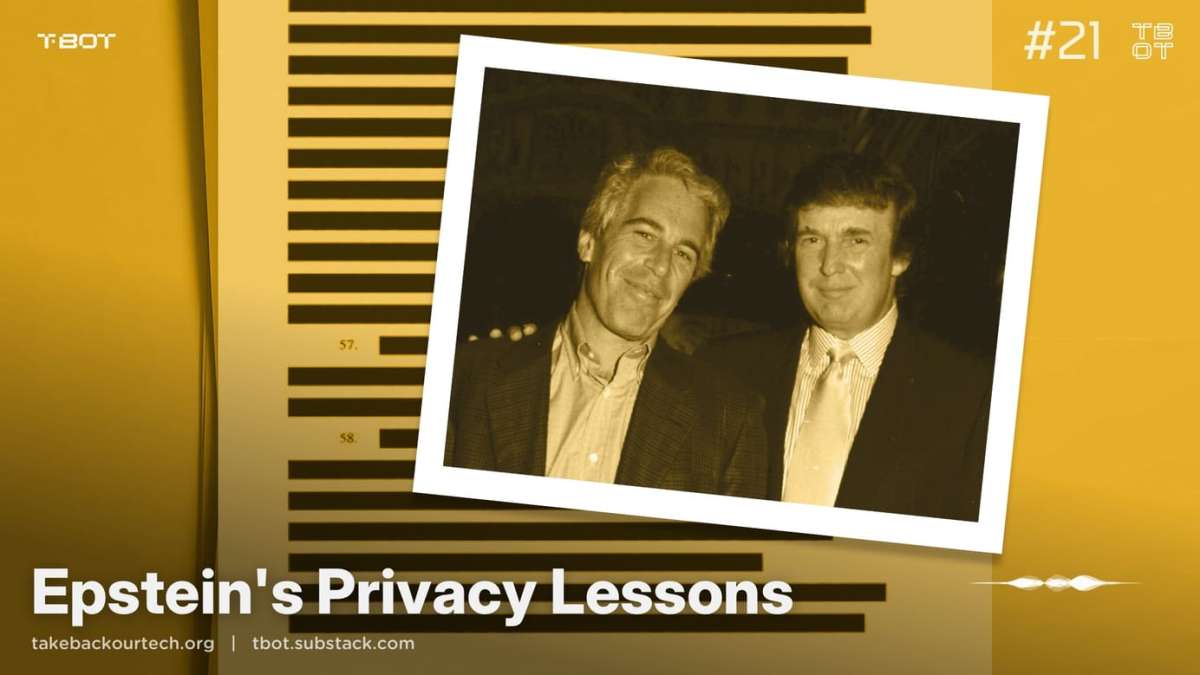This post was updated on 03/10/25 to incorporate breaking news.
And so the UK’s Digital ID is official. Not legal, no laws have been passed, not even real in the sense it exists at all. But it is official, with the full backing of the Labour Government.
I have talked and written extensively and at length about the planned rollout of Digital ID, the many and varied uses of Digital ID and the pervasive danger to liberty posed by Digital ID. They have pitched it as a solution to every problem, it has been on the agenda for twenty years.
The official announcement is, possibly, the least surprising news there has ever been.
And yet, suddenly, I find myself doubting the sincerity.
Let me explain.
Imagine you’re watching a movie — a mystery thriller or whodunit — and as the story progresses you’re assessing clues and forming your theories. You have a suspect, you think you know who the bad guy is going to be.
Then, about halfway through, you start doubting yourself. There’s too much evidence. The movie seems to be making it too obvious, the main characters are openly accusing your chosen suspect and there’s still an hour left. You start asking…is he the fake-out villain? Will the twist be he was wrongly accused?
After an odd two weeks, that’s where I find myself with digital ID. I’m genuinely beginning to think they might just…not.
I’m seeing resistance from quarters I wouldn’t expect, and I’m suddenly questioning the narrative.
I remember Covid, I remember that Covid sceptics could barely get likes on Twitter, let alone get to go on Question Time or write columns for the Telegraph or Guardian.
I know what it looks like when an agenda is being sold hard and no opposition is brooked.
It doesn’t look like this…
Members of Parliament are opposing it, from every single party including Labour. Labour mayors are likewise against it.
Every single party in Northern Ireland is against it as well, with the First Minister calling it “ill-thought out and ludicrous”.
Articles and letters critical of the scheme are appearing in papers across the spectrum from the Telegraph to the Guardian to The Sun.
Labour Ministers, and Keir Starmer himself, are being challenged in TV interviews – with pertinent, reasonable questions. That never happens unless someone powerful wants it to happen. It CAN’T happen by accident, because interviews are discussed and questions vetted beforehand.
A petition against the plan allegedly gained over a million signatures in 24 hours[see update].
It’s at nearly three million now.
Somebody created this 30-foot tall sand art of Sir Keir, and the police were dispatched to remove it:
I look around and suddenly find myself on the same side as David Davis and Boris Johnson, and Owen freakin’ Jones and I start to doubt.
It’s like that Stonetoss comic meme, with the tug of war…

I’m surprised by the players on my team. It makes me wonder if the rules of the game have changed.
Maybe there’s a bait-and-switch coming.
It might be the reaction to Digital ID will be such a defeat for Starmer that he resigns, perhaps causing a new general election, leading to a Reform win and Nigel Farage as Prime Minister. That seemed crazy a few years ago, but I can’t shake the idea now.
It might be that Starmer immediately scraps the plan, and this is held up as an example of his “listening to the will of the public” and “the system working” and our side gets a much-needed win.
Both these possibilities account for the headlines hammering home Sir Keir Starmer’s apparently cratering approval rating. The former also accounts for the Tory’s comparatively weak denunciations of the Digital ID plan, since they would likewise need to step aside to allow Reform to win the government and give us our British Trump.
It’s also possible that the UK will be used as a “control group” on Digital ID.
Those criticizing or blocking it will be shown up and embarrassed somehow. A terrorist attack will take place that “could have been prevented by Digital ID”, maybe. Or the next “pandemic” or other global event will be shown “to have done less harm in countries that had digital ID in place and were able to respond more efficiently”
Or, similarly to Brexit, the UK’s lack of Digital ID will see us fall behind in contrived economic metrics of some kind that are in turn used to excuse our deliberately sabotaged cost of living.
However it unfolds, it just feels like there is too much opposition – too much broadcast, mainstream opposition – for this to proceed along the prescribed lines. Some wrinkle is coming.
On the other hand, it’s possible that insiders and media-types know that Digital ID is now a fait accompli, so they boost their anti-establishment, pro-freedom credentials safe in the knowledge their opposition will make no difference whatsoever.
That does happen.
But, whatever does happen, I should be clear about three things.
1. Digital ID is still going to happen.
A digital ID system is foundational for the “Great Reset” world; plans for digital currency and 15-minute cities and all the rest of it rely on the keystone of digital IDs. They already exist in many countries around the world and will exist in dozens more by the end of next year.
Even if this iteration of it ends up being scrapped, it will still happen, just under a different name and probably introduced by the very people most vocally opposing it right now.
What I’m talking about here is the possibility of a localised delay and/or rebrand, not an abandonment.
2. Digital ID is STILL a bad thing.
This is not me flipping sides and going pro-Digital ID just because I don’t like agreeing with Owen Jones. Not even I am that much of a contrarian. I’m not changing my position on Digital ID – it is bad. Any world without it is almost certainly preferable to a world with it.
If it retreats in the face of opposition, even as part of a long-term bait-and-switch psy-op, that is still better than it being implemented immediately.
3. We are still winning.
This is not a blackpill take. I’m not suggesting that all resistance to Digital ID is fake and we can’t win. The opposite, in fact. If I’m right, what we’re seeing is a response to widespread opposition, a move designed to harness and then redirect the momentum of organic resistance.
That’s what I’m warning against, I suppose. The possibility that we could be handed a “win” on digital ID that is immediately parlayed into something else. Slingshot around the moon and back down to earth.
Like when you’re pushing against a foe who’s pushing back, and they suddenly…stop. You find yourself pushing against nothing and your apparent sudden “victory” destroys your control.
You have to be aware of that, even as you push.
Remember the Battle of Hastings. Harold and his Saxons had the high ground; they were holding firm, and a dozen Norman charges couldn’t punch through. But when the Normans feigned a retreat, the Saxons, filled with the unexamined joy of victory, gave chase and abandoned the tactics and position which was winning them the battle.
And then they lost.
In short, the Saxons were winning until they were sure they had won.
So I guess what I’m saying is stay on the high ground and keep the shield wall up even as they retreat, because I just don’t trust it.
I could be wrong, it does happen. Maybe I’ve just been in the minority so long I don’t trust being in the majority.
To return to our movie metaphor, sometimes a plot twist is so plainly obvious and so ham-fistedly telegraphed and so painfully contrived you’re sure it must be a red-herring…but it’s not. It happens.
People do write bad movies, and our political landscape has resembled little more than a very bad movie for a very long time.
*
UPDATE: The government has hand-waved away the 2.7 million signature petition. And earlier today it was reported the CEO of Palantir UK has officially distanced his firm from the plan citing “undemocratic” concerns — just in case you were wondering which way the wind was blowing.





![[UPDATED] So, the Digtal ID narrative is falling apart….and yet I have doubts. [UPDATED] So, the Digtal ID narrative is falling apart….and yet I have doubts.](https://www.activistpost.com/wp-content/uploads/2026/02/wisewolf-250x147.webp)
![[UPDATED] So, the Digtal ID narrative is falling apart….and yet I have doubts. [UPDATED] So, the Digtal ID narrative is falling apart….and yet I have doubts.](https://www.activistpost.com/wp-content/uploads/2025/08/Wolf-Pack-Gold.png)